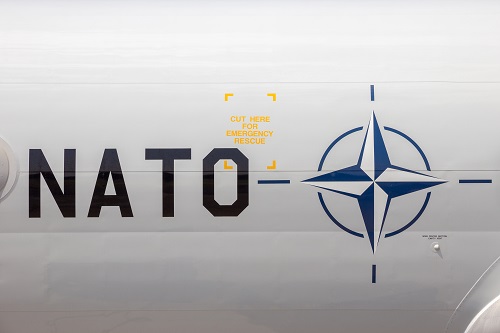Issue Briefs

Why Is Montenegro Joining NATO A Big Deal?
Paolo von Schirach
March 31, 2017
With the US Senate approving by a huge margin Montenegro entering NATO, the US-led security pact, (only 2 senators opposed), soon enough this small country, once a region of the former Yugoslavia, will join the western military alliance created on April 4, 1949 with the Treaty of Washington. In “normal” times, this tiny NATO enlargement should not be an event that would move the needle one way or the other.
Montenegro is small
Indeed, on the face of it, Montenegro NATO membership should be a “non issue”. Hard to believe how a very small Balkan nation, with a population of 650,000, an army with only 2,000 soldiers, and a country GDP that is about the same size as the budget of the New York City police force, will alter the balance of forces in Europe.
A symbol
And yet, it is a sign of the times we live in that this issue of Montenegro and its accession into NATO somehow has become a big deal. Russia sees this step of Montenegro joining NATO as further evidence of a relentless eastward NATO expansion, most likely with the intent of encircling the Russian Federation, therefore creating a national security threat for Moscow.
Sending a message to Moscow
The US and other western countries instead want to portray the extension of NATO’s protection to this small Balkan nation as a manifestation of western political resolve. Russia is accused of trying to alter unilaterally the post war borders of Europe. Washington extending a helping hand to Montenegro, this way guaranteeing its security from possible external threats, supposedly would send a signal to Estonia, Poland and other NATO members bordering Russia: “America is here to stay in Europe. No intention to leave. Abiding by the letter of the NATO Treaty, Washington pledges that it will stand by its allies, large and small, no matter what”.
Adding more complexity to the Montenegro accession issue, it is clear that the country was and is divided on this matter. Pro NATO political forces have accused Russia of meddling.
Moscow and Washington should address distrust issues
Be that as it may, instead of using tiny Montenegro as a political symbol, it would be better for both Washington and Moscow to get together and seriously try to find common ground regarding legitimate security concerns. No, NATO is not about to attack Russia. By the same token, NATO should recognize Russian concerns regarding ethnic Russians outside of the borders of the Russian Federation, and Moscow’s historic connections with Slavic nations in Eastern Europe and the Balkans. The way forward should include ways which will enable Russia to feel more secure, while NATO countries can be convinced that Russia will use diplomacy, and not military force, (or subversion), to further its political interests in Eastern Europe and other border areas.
Find a way to improve East-West relations
Montenegro’s accession to NATO will change nothing when it comes to the balance of forces in Europe. However, the very fact that we are even talking about this enlargement of the western alliance as a real problem, contributing to the further deterioration of East-West political relations, is indicative of the under currents of deep distrust between the US and Russia.
It should be in the interest of both Washington and Moscow to address this distrust.
 Paolo von Schirach is President of the Global Policy Institute and an Adjunct Professor at BAU International University. A different version of this article first appeared in the Schirach Report www.schirachreport.com
Paolo von Schirach is President of the Global Policy Institute and an Adjunct Professor at BAU International University. A different version of this article first appeared in the Schirach Report www.schirachreport.com
The views and opinions expressed in this issue brief are those of the authors and do not necessarily reflect the policy of GPI.